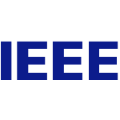A key aspect of human intelligence is their ability to convey their knowledge to others in succinct forms. However, despite their predictive power, current machine learning models are largely blackboxes, making it difficult for humans to extract useful insights. Focusing on sequential decision-making, we design a novel machine learning algorithm that conveys its insights to humans in the form of interpretable "tips". Our algorithm selects the tip that best bridges the gap in performance between human users and the optimal policy. We evaluate our approach through a series of randomized controlled user studies where participants manage a virtual kitchen. Our experiments show that the tips generated by our algorithm can significantly improve human performance relative to intuitive baselines. In addition, we discuss a number of empirical insights that can help inform the design of algorithms intended for human-AI interfaces. For instance, we find evidence that participants do not simply blindly follow our tips; instead, they combine them with their own experience to discover additional strategies for improving performance.
翻译:人类智能的一个关键方面是他们以简洁的形式向他人传递知识的能力。 然而,尽管它们的预测力,目前的机器学习模型基本上是黑匣子,使得人类难以获得有用的洞察力。我们专注于顺序决策,设计了一部新型机器学习算法,以可解释的“小提法”的形式向人类传达其洞察力。我们的算法选择了最佳的线索,以最佳的方式弥合了人类用户和最佳政策之间在业绩方面的差距。我们通过一系列随机控制的用户研究来评估我们的方法,参与者管理虚拟厨房。我们的实验表明,我们算法产生的小提法可以大大改善人类相对于直观基线的性能。此外,我们讨论了一些经验性洞察力,可以帮助设计用于人类-AI界面的算法。例如,我们发现有证据表明,参与者并非盲目地遵循我们的小提法;相反,他们将他们与自己的经验结合起来,以发现其他改进业绩的战略。







































